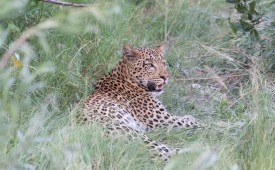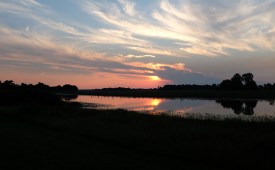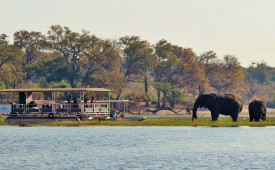-
Latin America
Latin America
- Countries (hidden space)
- Galapagos & Ecuador
- Guatemala
- Mexico
- Panama
- Peru
- Popular Attractions
- Machu Picchu
- Inca Trail
- Easter Island
- Galapagos Islands
- Patagonia
- Rio de Janeiro
- Iguazu Falls
-
Africa
Africa
- Spacer Africa
- South Africa
- Zimbabwe
- Popular Attractions
- Cape Town
- Okavango Delta
- Sossusvlei Dunes
- Victoria Falls
- The Kruger
- The Garden Route
- Masai Mara
-
Asia & Middle East
Asia & Middle East
- Asia
- Borneo (Malaysia)
- Cambodia
- India
- Japan
- Middle East
- Jordan
- Spacer Asia
- Laos
- Sri Lanka
- Uzbekistan
- Vietnam
- Popular Attractions
- Taj Mahal
- Lion Rock (Sigiriya)
- Angkor Wat
- Ha Long Bay
- Kyoto
- Petra
-
Destinations
- Latin America
- Argentina
- Bolivia
- Brazil
- Chile
- Colombia
- Costa Rica
- Galapagos & Ecuador
- Guatemala
- Mexico
- Panama
- Peru
- Asia
- Borneo (Malaysia)
- Cambodia
- India
- Japan
- Laos
- Sri Lanka
- Uzbekistan
- Vietnam
- Middle East
- Jordan
- Southern & East Africa
- Botswana
- Kenya
- Namibia
- South Africa
- Zimbabwe
- Contact Us
-
About
About
Llama Travel provides high quality holidays at the lowest possible prices.
99% recommend us Lower prices - guaranteed Financially protected by ATOL
Travelling to Botswana
Travelling in Botswana
-
Money
The currency in Botswana is the Botswana Pula, and US Dollars are widely accepted throughout the country. Credit and debit cards can be used in many shops and restaurants, and can also be used to withdraw money from cash machines. You can exchange Euros, GBP and US Dollars in both Maun and Kasane.
It is always recommended to inform your bank that you are travelling abroad and to which countries. This will allow them to authorise money withdrawals from your account when you are away. Some banks say that this is not necessary, however we would still recommend contact with your bank as in some cases people have had difficulty in withdrawing currency.
-
Tipping
Tipping in Botswana is standard practice. In restaurants, a service charge may be added as a matter of course, in which case there is no need to tip. If there is no service charge and the service has been good, restaurant staff are used to receiving 10% of the total bill. During the mobile safari, we recommend using the following guidelines (per person per day): USD$10 for the guide, USD$5 for the chef and USD$5 for the general staff.
-
Budgeting for your stay
All hotels include breakfast, and all meals are included during the mobile safari.
We recommend budgeting approximately USD$25-35 for a meal at the lodges in Kasane and Maun.
Throughout Botswana there are opportunities to shop for souvenirs and we advise setting aside some of your budget for this purpose. Credit cards are accepted in most places although Amex has more limited use.
-
Food
Typical Botswana meals are composed of staples such as sorghum and maize, with a variety of game meats and vegetables. In cities like Maun, you will find a range of restaurants and bars.
During the safari, all meals and drinks are provided, and any special requirements should be made clear when booking. Water, tea and coffee are available all day. Wine, local beer and soft drinks are provided, and some spirits are available on request. A typical safari day will start with a coffee and light breakfast around the fire before heading straight out for a game drive or walking safari. After several hours of wildlife viewing you will stop for tea, coffee and cookies. Later in the morning you will have a brunch back at the camp which usually consists of fresh-baked camp bread, baked dishes and cold salads. Dinner is then served after the afternoon’s activities.
-
What to pack - Botswana
During the summer months it (November - March) is hot in the middle of the day, becoming cooler but still warm at night. The average daytime temperatures are around 35°C, dropping to low-20s during the night. Botswana is a summer rainfall region and late afternoon showers are common from December to April. Winter (May – August) can go below freezing at night in drier areas but during the day it warms up substantially to about 25°C. Early morning game drives on an open vehicle can be quite chilly. Dressing in layers is the best way to deal with the varying temperatures during the winter months, and a windproof jacket is a good idea.
Electrical sockets in Botswana are 230 Volts. Sockets fit plugs with three round pins. All safari vehicles are fitted with 220-volt inverters which are linked to Botswana plug sockets for easy charging.
We recommend you carry a copy of your passport with you at all times.
Please bring any medication you may require from the UK, as this can be hard to source in Botswana.
Lightweight, light coloured cotton trousers and long-sleeved shirts
Absorbent socks
Walking boots
Pullover or jacket for the early mornings and evenings
Warm hat and gloves for winter months
Sun hat
Swimsuit
Binoculars
Camera equipment – a lens with a long zoom is recommended for photographing wildlife
Pack of cards/reading material
Torch/head torch
Water bottle
Sun cream
Insect repellent
Medication
Day pack
-
What to expect on a Letaka mobile tented safari
A Letaka mobile tented safari is an adventurous way of experiencing one of the world’s great wildlife areas. With a maximum of seven guests, you will be well looked-after by a guide, chef and up to two general staff. After being met by your guide at the airstrip near Moremi National Park, you are driven through the park in an open game vehicle to your first camp. All camps are set up by the general staff, ready for your arrival, when you will be assigned a tent. The camp consists of a campfire area for guests, a covered dining area with a table and chairs, and open sides, and individual sleeping tents. Safari tents are thick canvas with mesh windows and doors which can be left open to let in a breeze, or zipped closed with canvas to keep out the cold. There is no air conditioning or fan so tents can get hot during the day. There are single camp beds inside and a small shaded porch with foldable camp chairs. There is a private bathroom area with a bucket shower and pit toilet. Single, twin and family tents are available. There is no phone signal or WiFi when camping. The camps are not fenced, so wild animals can wander through camp, so you should not leave your tent after lights out. Mornings in the bush start early. You will be up before sunrise for a simple breakfast of toast, cereal, fruit and hot drinks, followed by a game viewing excursion (usually a game drive). After the sun is up you will stop in a picturesque spot for a tea break, later returning to camp for an early lunch - a hearty main accompanied by salads. The rest of the afternoon is free to read or relax. In the late afternoon you head out for a second game drive, returning to camp for a simple but tasty three-course meal, enjoyed under the stars with the fire crackling in the background. On the fourth day of the safari you take a full day game drive through the park to the second camp. Your days at this second camp will follow the same rhythm as the first. Food and alcoholic drinks are included. Vegetarian meals can be catered for but not vegan or other dietary requirements.



